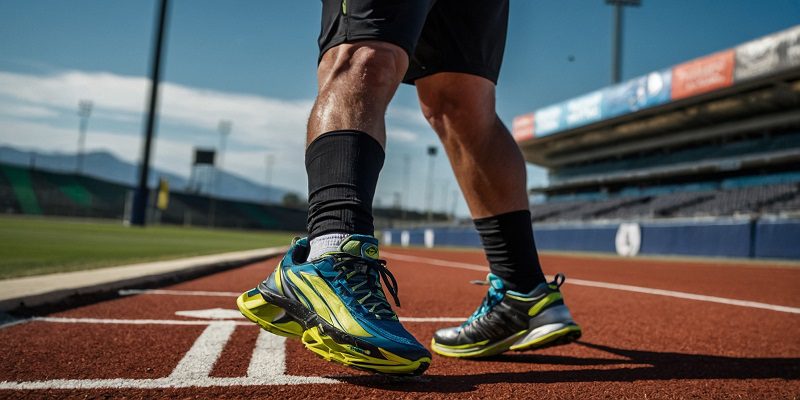Elevating Performance: The Decade's Top 10 Sports Tech Advancements

In the past decade, sports technology has witnessed a remarkable evolution, transforming the way athletes train, compete, and recover. From cutting-edge wearables to advanced analytics, these innovations have revolutionized sports performance. Let’s delve into the top 10 sports tech advancements that have reshaped the landscape of athletics.
Wearable Fitness Trackers:
Enhancing Training Precision
Wearable fitness trackers have emerged as indispensable tools for athletes, providing real-time data on vital metrics such as heart rate, distance covered, and calorie expenditure. These devices enable athletes to fine-tune their training regimens, optimize performance, and prevent injuries by tracking their progress with precision.
Smart Apparel:
Technology into Clothing
Smart apparel integrates technology seamlessly into clothing, offering features like moisture-wicking fabrics, temperature regulation, and biomechanical feedback. Furthermore, whether it’s compression garments that enhance circulation or sensor-embedded shirts that monitor muscle activity, smart apparel enhances comfort and performance during training and competition.
Virtual Reality (VR) Training:
Immersive Skill Development
Virtual reality training has revolutionized skill development across various sports. Athletes can now immerse themselves in realistic simulations, allowing them to practice scenarios and refine techniques in a controlled environment. VR training enhances cognitive skills, decision-making abilities, and spatial awareness, giving athletes a competitive edge.
Biomechanical Analysis:
Precision Performance Assessment
Biomechanical analysis utilizes motion capture technology to assess athletes’ movements with unparalleled precision. Additionally, by analyzing factors such as joint angles, force exertion, and kinetic chain mechanics, coaches and sports scientists can identify biomechanical inefficiencies and tailor training programs to optimize performance and minimize injury risk.
GPS Tracking Systems:
Monitoring Performance Metrics
GPS tracking systems have become integral tools for monitoring athletes’ performance during training and competition. These systems provide valuable insights into metrics such as speed, acceleration, and distance covered, allowing coaches to track progress, adjust strategies, and identify areas for improvement with greater accuracy.
Data Analytics Platforms:
Harnessing the Power of Big Data
Data analytics platforms have transformed the way sports organizations analyze and interpret vast amounts of performance data. Furthermore, by leveraging machine learning algorithms and predictive analytics, these platforms provide actionable insights into athlete performance, opponent scouting, and strategic decision-making, giving teams a competitive advantage on and off the field.
3D Printing Technology:
Customized Equipment and Gear
3D printing technology has revolutionized the design and manufacturing of sports equipment and gear. From customized footwear to personalized protective gear, 3D printing enables athletes to optimize comfort, fit, and performance. This technology also facilitates rapid prototyping and iterative design processes, allowing for faster innovation and product development cycles.
Brain Training Devices:
Enhancing Mental Resilience
Brain training devices have gained traction in sports psychology, helping athletes enhance their mental resilience and cognitive performance. Moreover, these devices utilize neurofeedback techniques to train focus, concentration, and stress management skills, enabling athletes to maintain peak performance under pressure and overcome performance barriers.
Recovery Technology:
Accelerating Recovery Processes
Recovery technology has become essential for athletes seeking to optimize their recovery processes and minimize downtime. Furthermore, from cryotherapy chambers to pneumatic compression devices, these technologies enhance circulation, reduce inflammation, and promote tissue repair, allowing athletes to recover faster and perform at their best consistently.
Advanced Performance Monitoring Systems:
Real-time Feedback
Advanced performance monitoring systems offer real-time feedback on various aspects of athletic performance, including technique, power output, and physiological responses. Additionally, by providing instant insights during training sessions and competitions, these systems enable athletes and coaches to make immediate adjustments and maximize performance potential.
Conclusion
The past decade has witnessed a rapid proliferation of sports technology, ushering in a new era of athletic performance enhancement. From wearable trackers to virtual reality training, these advancements have reshaped the way athletes train, compete, and recover. As we look to the future, the integration of technology into sports will continue to push the boundaries of human performance, unlocking new levels of achievement and innovation in the world of athletics.





